#codependency
Explore tagged Tumblr posts
Text
Writing Codependent Characters

Codependency
The state of being mutually reliant (e.g., a relationship between two individuals who are emotionally dependent on one another).
A dysfunctional relationship pattern in which an individual is psychologically dependent on (or controlled by) a person who has a substance use or non-substance-related disorder (e.g., alcohol use disorder, gambling disorder).
Signs of Codependency
Some things found to correlate with codependency include (Marks et al., 2012):
Low self-esteem
Low levels of narcissism
Familial dysfunction
Depression
Anxiety
Stress
Low emotional expressivity
Other signs of codependency (Lancer, 2016; Mental Health America, n.d.):
Having a hard time saying no
Having poor boundaries
Showing emotional reactivity
Feeling compelled to take care of people
Having a need for control, especially over others
Having trouble communicating honestly
Fixating on mistakes
Feeling a need to be liked by everyone
Feeling a need to always be in a relationship
Denying one’s own needs, thoughts, and feelings
Having intimacy issues
Confusing love and pity
Displaying fear of abandonment
Differentiate between a Healthy & a Codependent Relationship
In a healthy relationship, both individuals have a sense of autonomy and independence. Both are able to maintain their own identities while still being connected to their partner.
While in a codependent relationship, one person may sacrifice their own needs and wants in order to please their partner, or they may become overly enmeshed and lose a sense of self.
Additionally, in a codependent relationship, there is often an imbalance of power, with one person being overly controlling or dominant.
Overcoming Codependency
Research has been conducted into group, individual, and family therapy modalities for overcoming codependency, with one systematic review showing a significant reduction in symptoms when long-term post-intervention follow-ups were conducted (Abadi et al., 2015).
The main emphasis of these various treatment modalities is on altering how the codependent person views themselves and their relationships.
This can involve interventions with various (or numerous) goals:
Building Self-Esteem. Low self-esteem is a well-established symptom of codependency (Cermak, 1986; Whitfield, 1991). Building the codependent person’s self-esteem is a main focus of many counseling interventions, with evidence supporting their efficacy (Abadi et al., 2015).
Improving Boundary Setting. Weak or unclear boundaries are another reason codependent people are often willing to compromise their personal needs and happiness to satisfy a partner. Interventions aimed at building self-awareness, self-expression, and communication skills can help an individual’s ability to set and enforce healthy boundaries (Abadi et al., 2015).
Encouraging Self Care. Boundary-setting is just one form of self-care. People with codependent tendencies can also benefit from learning to prioritize their self-care, needs, and happiness before taking care of others (Beattie, 2008).
Originally, “the term ‘codependent’ described persons living with, or in a relationship with an addicted person” (Lampis et al., 2017).
A psychological construct involving an unhealthy relationship that people might share with those closest to them.
It was originally thought to involve families of substance abuse but has since grown to include other types of dysfunctional relationships.
Modern understandings of codependency: “a specific relationship addiction characterized by preoccupation and extreme dependence—emotional, social and sometimes physical—on another person” (Lampis et al., 2017).
The concept of codependency does still apply to families with substance abuse issues but is also used to refer to other situations too.
The main consequence of codependency is that “[c]odependents, busy taking care of others, forget to take care of themselves, resulting in a disturbance of identity development” (Knudson & Terrell, 2012).
To sum up, codependency is a psychological concept that refers to people who feel extreme amounts of dependence on certain loved ones in their lives, and feel responsible for the feelings and actions of those loved ones.
Codependency is not recognized as a distinct personality disorder by the DSM-5.
That said, research shows that while codependency does overlap with other personality disorders, it appears to constitute a distinct psychological construct. The best way to learn about codependency is to review some signs of codependency (examples above).
Sources: 1 2 ⚜ More: Notes & References ⚜ Writing Resources PDFs
#codependency#psychology#character development#writeblr#writing reference#writing notes#literature#writers on tumblr#dark academia#spilled ink#writing prompt#creative writing#light academia#writing inspiration#writing ideas#character building#anders zorn#writing resources
425 notes
·
View notes
Text
I feel like a lot of people point more towards Leo saying that he's useless without his brothers more than they point towards him saying he's useless in the maze of champions episode and I think the reason for that is that he becomes more skilled in that field as the show goes on and it's hard to pull angst out of it when that's the case, but I really do think that puts more of a spotlight on his complex regarding the idea of "uselessness" than him saying he's useless without his brothers.
This is because I think him saying he's useless without his brothers is more indicative of a level of emotional dependency. We can assume that they grew up largely away from society, sticking together in isolation. This often (... basically always) has a profound impact on a child's psychological development. We already know Raph can't function outside the group. At least not when it's unexpected.

I think this applies to most of them, even if it manifests in different ways.
I actually find it interesting, the idea that Donnie doesn't talk about his "emotionally unavailable bad boy image" exclusively as some kind of fantasy, but somewhat taking from an understanding (that they all probably have) that his identity isn't so reliant on the others' existences as the others' identities are.
Everyone else's role is related to the fact that they exist as a group. Raph is the oldest, the protector. Leo is the faceman, he speaks for the group, almost like a lawyer. And Mikey is the younger brother, as well as the hypeman. These are all central to their identities and are also inherently dynamical. Their senses of self are in relation to their existence as a collective. But Donnie's understanding of himself is pretty self contained. He's the science guy. He wouldn't handle the loss of his brothers any better than any of his brothers would, but it wouldn't shatter his sense of self. He would still know who he is without them.
To perhaps provide a visual of this dynamic in action-

There's angst in all directions there tbh. Raph and Leo's are kind of self explanatory and straight up have been explored in canon. But I think that Mikey thinks he's less reliant on this dynamic than he is, and Donnie isn't as reliant on the others but he probably feels disconnected from his brothers. That could be interesting psychologically, in contrast with the others' bonds forming because there's no one else to bond with, him going the other direction and becoming self reliant.
Although it is implied that he's the closest with April which may have lead him to being slightly, technically healthier about his sense of self. Though I do think that seeing the bond his brothers have that he doesn't experience with them does probably still cause some feelings of isolation regardless. I don't think his brothers are thrilled with this going the other way around either tbh

#He always seems to be a group lingerer and no one is thrilled about it#April seems to work as a kind of glue for that when she's around though#You wanna write something about this? I'd recommend having April go out of town or something#important to note though that otherwise Mikey is generally the most successful at actually getting him to feel connected with the group#even if it's sometimes only by proxy#codependency#rottmnt leo#rottmnt raphael#rottmnt donnie#rottmnt mikey#rise of the tmnt#tmnt#save rottmnt#save rise of the tmnt#tmnt leonardo#hamato leonardo#tmnt raph#tmnt raphael#hamato raphael#tmnt donatello#donatello hamato#rise donatello#rise leonardo#rise leo#rise donnie#rise raphael#rise raph#tmnt michaelangelo#hamato michelangelo#rise michelangelo
102 notes
·
View notes
Text

[ cw: art of heart ripping out, scars ]
I would do ANYTHING for you.
#art#alt art#alternative art#creepy cute#artist#light guro#vent#codependency#vent art#marker#marker art#slaps#228 slaps#label 228#my art#mental illness art#lgbt artist#small artist#im so bad at tags#damn#colorful#bright colors#2024 art
105 notes
·
View notes
Text

#creepy#coquette#morute#doelet#angel#haunted#deer#trauma#abuse survivor#the night in the pool#codependency#bambi#fawn#doelette
170 notes
·
View notes
Text
need to go back and the watch season 1 again to see the development of the codependency.. it’s so GOOD and addictive.
34 notes
·
View notes
Text
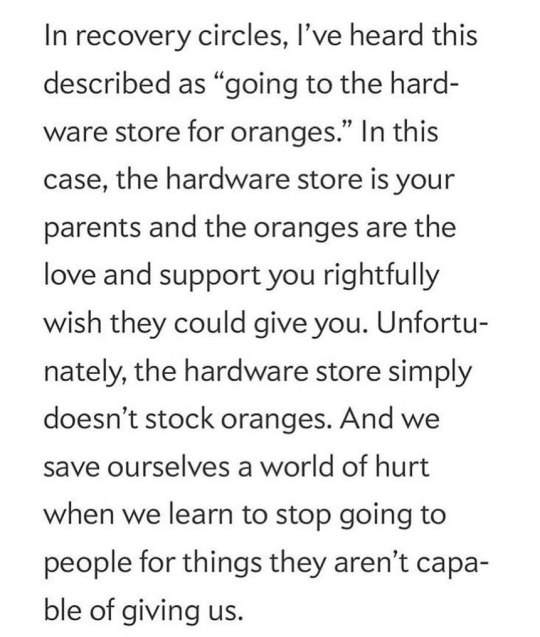
#recovery#stop enabling#self care#self care is not selfish#doing the hard stuff#self care is not an indulgence#codependency#boundaries#relationships#unhealthy relationships#family#friendship#mental health#make yourself a priority#self compassion#healing#low contact#no contact#dysfunctional family#people pleasing#fawning#love#find your people
39K notes
·
View notes
Text

14 notes
·
View notes
Text
"He was shallow.. And yet somehow I still managed to drown."
#unrequited affection#unrequited romance#unconditional love#unrequited love#unrequited crush#unrequited feelings#romantic writer#romantic academia#romantic#romance#lovers#lust#love#unconditional affection#passion#surrealist#spilled thoughts#life quotes#beautiful quote#twinflames#twinflame#soulmate#karmic tie#karmic relationships#toxic relationship#relationship#codependency#sensuality#vulnerability#dark acamedia
45 notes
·
View notes
Text

"and after all the things we put each other through and I would drive on to the end with you"
#supernatural#wincest#weirdcest#sam winchester#dean winchester#samdean#sam x dean#chevy impala#they definetly did it in the impala!!!#and on the impala#and while driving...#the impala has seen things lets just say#digital art#fanart#artists on tumblr#bottom sam winchester#codependency#psychotically irrationally erotically codependent#my chemical romance#lyrics
1K notes
·
View notes
Text
what a normal and healthy bond these two have!



crazy just runs in the family ig
#the s classes that i raised#han yoojin#han yujin#han yoohyun#codependency#highkey#they actually need help#like this is a real scene pretty much#manwha#sctir
655 notes
·
View notes
Text
YES many dynamics have like 7 of these at once. but i'm in A Mood. tell me about ur faves and their awful bullshit.
#i think everyone here knows which relationships this is about for me personally.#polls#codependency
3K notes
·
View notes
Text
I love the idea of parentified Tim Drake.
Bruce loses Jason and isn't ready for another son. Tim sees this, he acknowledges this, and he's okay with it. He's never really been a son to his own parents so he wouldn't expect the neighbor to start taking care of him.
When Tim's parents come home, they're not mean or anything, they just don't baby him. They treat him as an equal--as someone who knows what he's doing--and that's fine, because he does.
He's been taking care of himself for as long as he could remember, so when people try to treat him like a child, it angers him more than anything. The way that they assume just because he's young he can't take care of himself.
Tim's been to galas before, though. He's talked with Bruce and the man never treated him like he was incompetent. Tim's parents would ask Tim questions about the company so that he could recite them to Bruce. It was a song and dance he was well versed in, but he didn't really mind, not when Bruce looked at him with such a fondness in his eyes, always saying, "That's really interesting. You know a lot about your parents' company. Did it take you a while to memorize it?"
And he'd shake his head and say, "No," because that was the correct response, even if it was wrong.
Even if he had flashcards about Drake industries and kept up to date with perception of the company and the stock value and who the shareholders were and what they wanted and what they were willing to do to get that.
It wasn't one bout of work. It wasn't a single night of studying to make sure he passed the test, but a lifetime memorizing information and then rememorizing it when it changed.
So when Jason died and Bruce started getting bad, Tim knew what to do.
He was used to long term projects where it would be years before he actually got to see any result. He was used to seeing adults as people who he was responsible for, though he had to admit that the responsibility had never been that big before.
When Tim showed up at Bruce's doorstep, he was young, just like both of Bruce's other sons, but his eyes lacked that sort of naïveté and childlike wonder that should have accompanied the baby fat which persisted on his cheeks.
That's what made Alfred pause at the door.
There was a kid. A black haired, blue eyed kid. He was young, like both of Bruce's sons. His lack of naïveté was something he shared with both children, only Dick's had been a fresh sort of loss, one he was still mourning, and Jason's naïveté was something long-forgotten and left to rot. It was a feeling you smelt when you left the windows closed for too long.
Still there, still somewhere, but not quite right and never able to be found, only stumbled upon in rare moments of something that could almost be called joy.
Tim's naïveté is something he left at home. He keeps it on a shelf in his bedroom, something to look at when the going gets rough, but something too fragile to be held.
Maybe that's why Alfred lets him in.
That day, Tim meets Bruce--not Brucie or Batman, just Bruce.
He meets a man who's hair's grown long, but not long enough for it to have been intentional. There's grease in his hair and bags under his eyes and you can tell that he's been biting his nails.
He's clean shaven, because that's what people can see when he wears the cowl.
Tim takes a deep breath before walking into the room.
Bruce doesn't move, but Tim doesn't doubt that the man notices him.
The room smells like alcohol--a smell he recognizes from when his own father is home, though he can't say he's ever remembered it smelling so concentrated.
"Hello," he says, when he's right in front of Bruce, "My name is Tim, and I'm here to help."
Bruce doesn't say anything, but he doesn't need to.
Tim talks to him, slowly distracting the man as he brings him to the bathroom, first trying to put a toothbrush in his hand and then, when that doesn't work, brushing the man's teeth himself.
Tim draws a bath for him and grabs him a new pair of clothes, and tells him to take his bath, only leaving the room when Bruce finally stands up and starts undressing.
Tim takes care of the sheets, puts new ones on the bed, and goes to the kitchen, to find Alfred already making food.
The butler asks him if he's staying to eat but Tim just insists that he's not hungry and brings the food up to Bruce.
He knocks on the bathroom door, and when Bruce doesn't respond, he opens it.
Bruce is sitting in the bath, knees to his chest, crying, but not otherwise moving.
So Tim rolls up his sleeves and washes Bruce's hair, then keeps him company as Bruce washes himself.
Bruce finds it easier to get things done when there's someone else in the room--talking to him, giving him something else to think about.
Tim talks as he gets Bruce out of the bath and hand him a towel. He talks as Bruce dries himself off and gets dressed. He talks as Bruce eats the lunch that Alfred made him and he talks until he gets Bruce back to bed.
He leaves, voice hoarse from talking so much after living in an empty home.
He comes back the next day and does it all again.
Alfred doesn't know what he should do. He knows, of course, that Tim is young and shouldn't be taking care of someone at that age.
He also knows that Bruce is in no state to take care of himself and all of Alfred's attempts have been in vain.
Tim's talking was what got Bruce to eat his first actual meal in a week--not just popcorn and protein bars. Tim's presence is what got Bruce to bed.
Tim was what was making things better, so while Alfred knew he should put a stop to it, he couldn't quite make himself do so.
Instead, he started doing little things.
He invited Tim to stay for meals.
Invited Tim to stay the night.
It took a while, but eventually, Tim started living in the manor.
One month, there's only ghosts in the house, the next, three beating hearts.
One month, Bruce can only think of his son, the next, he's calling Tim his dad.
One day, Bruce crosses the line as Batman, and the next day, he has a Robin.
You know how things go from there, some things are lost, others are gained. Some things stay the same, others do nothing but change.
Bruce and Tim get better, but Bruce still thinks of Tim as his dad.
No one really pays it much heed, though. That's just how they are--nothing really to note.
It's Dick, though, who starts noticing something's off, because Tim never sleeps.
When Dick was first adopted, he had nightmares.
He'd remember what it was like to watch someone fall. He did not watch it from the ground, but from the balcony, holding onto a trapeze, moments away from completing his own jump.
It took him months to finally come to Bruce, tell him about his nightmares.
Though he was never told the details, he knew it was the same for Jason. He pushed Bruce away, insisted that he'd be fine on his own, but eventually started letting him in.
He never asked, but assumed it was the same for Tim. When Tim couldn't sleep, when he had nightmares, when he couldn't stand to sleep in an empty bed, he'd go to Bruce like the rest of them did.
It was a reasonable thing to assume, and it was a belief he only questioned when he got up in the middle of the night to get water.
That same night, Bruce had a nightmare. Bruce knocked on Tim's door. Bruce slept in Tim's bed.
Tim ran his hands through Bruce's hair, promising that everything would be okay until Bruce fell asleep.
Now that he knew to look for it, Dick started noticing even more. The way Tim knew Bruce's favorite food and the way Tim took care of the man's company so that Bruce had the freedom to do what he wanted. The way Bruce turned to Tim when he had a problem or wanted to be told he did something well.
It was wrong.
It was wrong and Dick was trapped because he hadn't noticed it earlier. Why didn't he notice it earlier?
Tim came to him first, asked him to become Robin again. Dick knew about Tim from the start. Dick was there for the entirety of his stay as Robin.
He was there.
So why didn't he noticed?
Jason sees him panicking on patrol and Dick just breaks.
He breaks down in his brother's arms--arms he can feel tightening around him as he tells him everything.
They talk about it a lot after that. Jason starts noticing things too.
They bring in Babs and start making a file--compiling evidence because there's always the urge to just ignore it. To acknowledge that Bruce is doing better than ever.
But that requires them to forget about Tim.
To let the boy take care of Bruce and not live his own life.
Because, now that they're looking, they can see how lonely it is.
How he doesn't have any school friends--he had to drop out to take over WE.
How he's grown apart from Young Justice--always leaving when Bruce is in trouble or needs someone to talk to, not able to bear the idea of what Bruce might do if left alone.
Because Tim knows he'll break.
Bruce needs someone to take care of him, and Tim exists to fulfill the needs of others, regardless of how much it takes from him.
So Tim goes and helps his son. He never talks about how tired he is. He has sleeping pills to fix that, and maybe he can't take them because what if Bruce has a nightmare and then he can't wake up Tim--it's unimaginable.
Dick and Jason notice, though, and they try to bring it up with him, but they're not sure how.
Not when Tim's gut reaction is just to start taking care of them, too. Easing their worries, telling them that everything's okay.
They want so bad to insist that it's not okay, that this is going to ruin Tim and he can't spend his whole life like this.
But they want even more to be held. To be granted that unconditional love and care that comes with being Tim's child.
So they try to say something--anything.
But then, Tim smiles. He opens his arms to them and asks about their days.
And they they try to tell him that not everything's okay, but Tim is smiling, and they try, but they can't say a thing.
#parentified tim drake#parentified child#tim drake and bruce wayne#tim drake#bruce wayne#jason todd#dick grayson#fic ideas#i would write this immediatelly#if i didn't already have so many incomplete works#so it's just a drabble for now#drabble#dc drabble#unreliable narrator#early loss of innocence as a tragedy#sleep as a metaphor for safety and comfort and being well loved#if this inspires someone to create#please link me to the creation#because this is an idea that i need to be consumed whole by#robin tim drake#unhealthy boundaries#codependency#codependent bruce wayne#the sleeping part was inspired by a tumblr post which i know i've reblogged but can't find for the life of me#unhealthy relationships#this was longer than i thought it would be oops#my writing#call's writing
737 notes
·
View notes
Text

More stuff for the 'childhood friends' au
#cw psychological abuse#psychological abuse#codependency#mouthwashing au#jimmy mouthwashing#curly mouthwashing#doodles#blood cw
560 notes
·
View notes
Text
Latest hobby: radical self-acceptance codependency affirmations
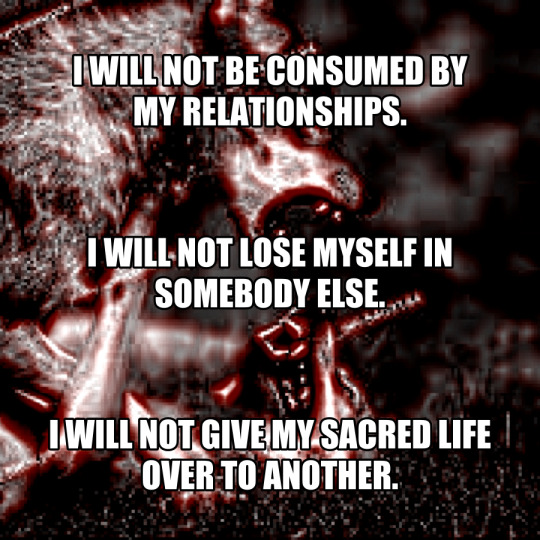
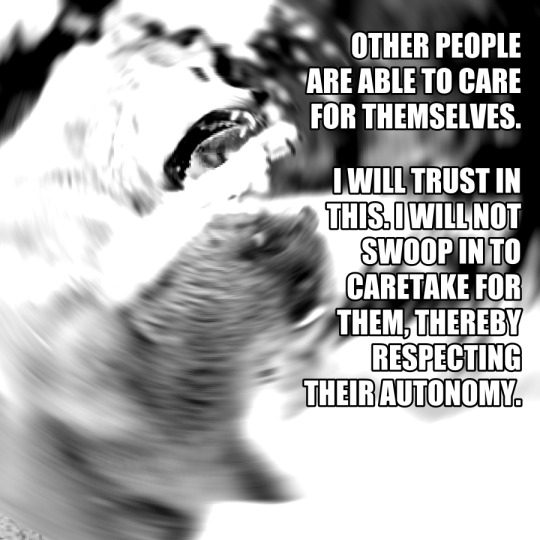


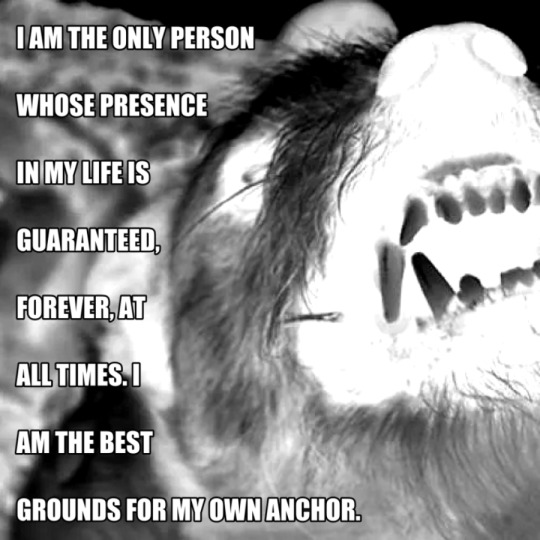

I like to use over-the-top edgy imagery to invoke the ~emo~ sentiments we associate with edge, juxtaposing the aggressively self-loving text. accentuates the punk nature of radical acceptance
#guiltyedits#radical self acceptance#affirmations#codependency#recovering codependent#edgy#grunge#hopepunk#dogs#wolves#cats#life necessity#favorite person#bpd fp#cluster b#personality disorder#trauma#attachment styles#people pleaser#caretaking#manipulation#unhealthy obsession#unhealthy relationships#addiction#behavioral addiction#to thine own self be true#codapunk#autonomy#consent culture#borderline personality disorder
3K notes
·
View notes
Text

#relationships#unhealthy relationships#trauma bonding#toxic people#boundaries#codependency#people pleasing#fawning#self respect#self love#self care#self compassion#you are enough#you are worthy#you matter#you deserve the love you so freely give to others#letting go#detachment#healing#recovery#love#giving and receiving
256 notes
·
View notes
Text
the self destructive urge to get into an abusive relationship
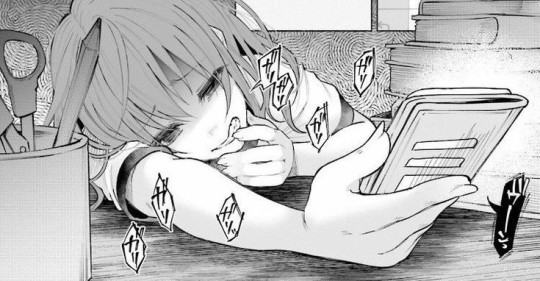
#real yandere#possessive yandere#soft yandere#tw yandere#yanblr#yancore#yandere#irl yan#obsessivecore#obsessive love#obsessive tendencies#obsessive thoughts#obsessive yandere#actually obsessive#codependency#bpd problems#actually bpd#bpd thoughts#bpd yandere#bpd vent
1K notes
·
View notes